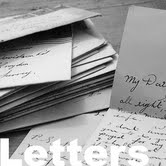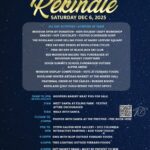LETTER: Wikileaks - Audi alteram partem
In his essay “Propaganda and Demotic Speech” (1944) George Orwell lamented “the bloodless dialect of Government” and the “inflated bombastic style” with which newspapers report on governments. Orwell held out the hope that “someday we may have a genuinely democratic government, a government which will want to tell people what is happening, and what must be done next, and what sacrifices are necessary, and why.”
If Orwell’s hope had materialized, there would be no information to leak and governments would not have much to hide from the citizens to whom they are supposed to be accountable. Governments feigned horror at WikiLeaks’ announcement of a mass release of confidential documents, issuing dire warnings that the release may endanger lives. The first wave of secret communications released did not amount to much: a few salacious bits about personal habits of some rather dubious characters among the world’s leaders. However, documents released in the second and subsequent waves provided a hint of widespread corruption, hypocrisy and double-dealing concealed under a cloak of diplomacy, unsavory behaviour by governments that many citizens have long suspected. We now know as a fact that Saudi Arabia, a major oil supplier to the world and major customer of the US armament industry is also the principal source of financing for al Qaeda. We also know now that the early release of the Libyan terrorist convicted of the Lockerbie bombing was not motivated by compassion, as the Scottish government would have us believe, but by fear of Libya’s threatened severe repercussions against British investments and trade interests if the terrorist were to die in a Scottish jail. While children and senior citizens are frisked and groped at airports and while remote villages in Afghanistan, Pakistan and Yemen are bombed by remote-controlled drones in the name of security, the “War on Terror” is surreptitiously suspended to placate corporate interests. WikiLeaks’ revelations affect Canada only marginally and indirectly, consisting essentially of he-said/she-said reports of conversations US ambassadors have had with Canadian officials. We can only imagine what a WikiLeaks-style release of secret information stored in Canadian government computers would reveal. What could Canadians learn from documents relating to meetings, discussions, and arrangements between the federal government and tobacco multi-nationals leading up to the decision to cancel new warning notices on cigarette packages? What meetings and discussions are now in progress and with whom, and what arrangements are being contemplated with corporate interests regarding the proposed oil port in Kitimat? What hidden information exists relating to the sale of BC Rail and to the government’s agreement to pay millions of dollars for legal fees to defend government insiders found guilty of criminal offenses in conjunction with that sale? How many secret documents are there relating to dealings with special interest groups prior to the decision to harmonize sales taxes or to disband programs, such as the Therapeutics Initiative, to name just a few of many decisions made behind closed doors and without public debate but with long-term consequences for us all? Speculation about the likelihood of such dealings is always denied, vehemently so, until decisions are made and presented to the public as a fait accompli. People pay taxes, they vote, and they cope with cuts in services at every level of government while corporations close their doors here only to open new doors where labour is cheap, taxes are low, and regulations are few. Governments are quick to tell people what must be done and what sacrifices are to be endured. But governments never give the real reasons why people must endure and sacrifice. We can only guess. MasterCard, Visa, Amazon, PayPal, and other corporate giants wasted no time assisting government attempts to neutralize and paralyze WikiLeaks. They did not molest news organizations powerful enough to fight back — the Guardian, Der Spiegel, Le Monde, El Pais, and the New York Times, who did the actual publishing of the information supplied by WikiLeaks. The story of interest to citizens with a passion for democracy is not WikiLeaks the organization, or Julian Assange, its founder. The real value in this story is the demonstration that communication technology can be applied not only to entertain and titillate, but also to compel governments to be truthful and accountable, and to tell people what is really happening.
























Comments